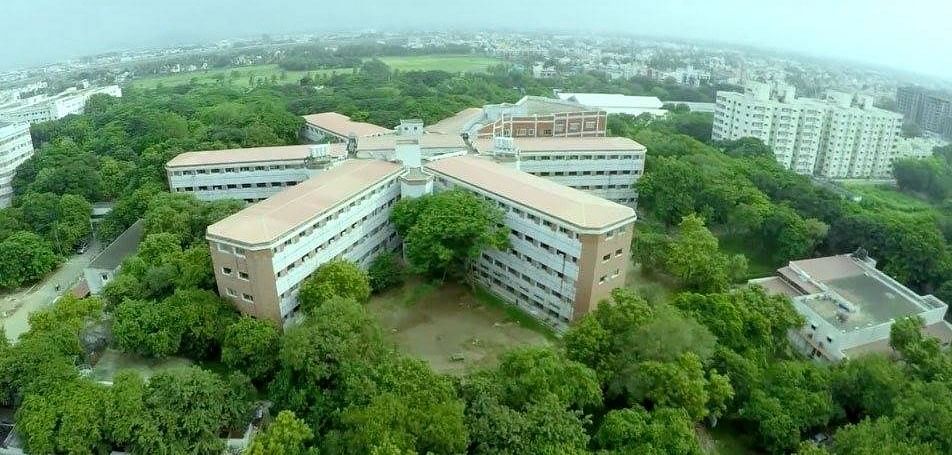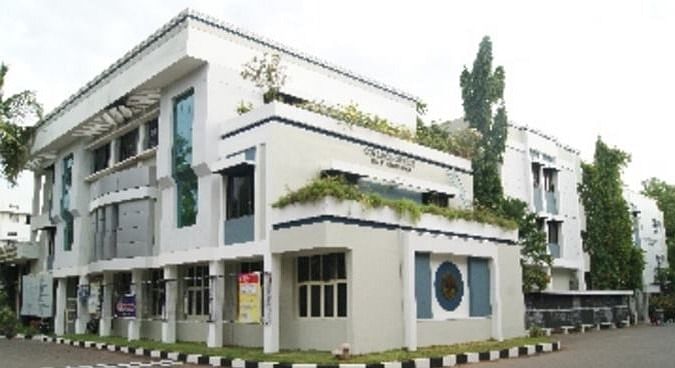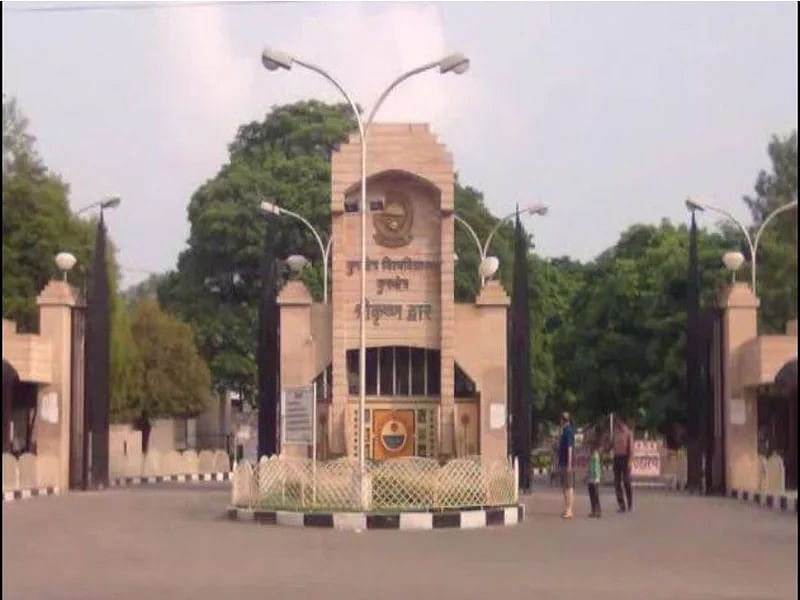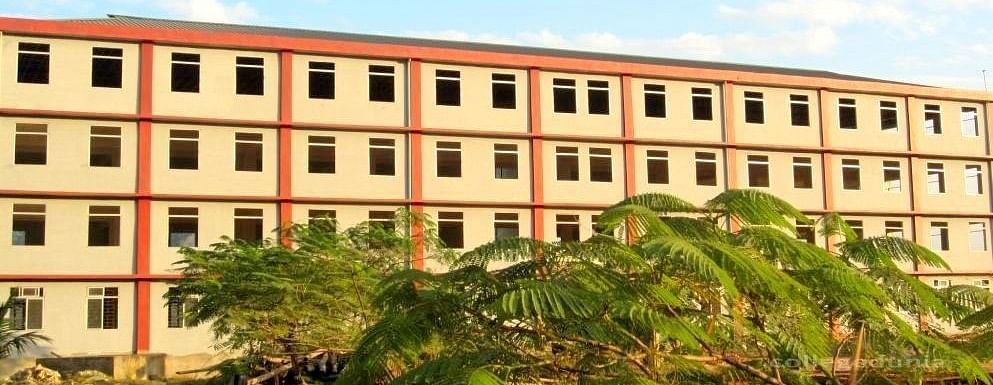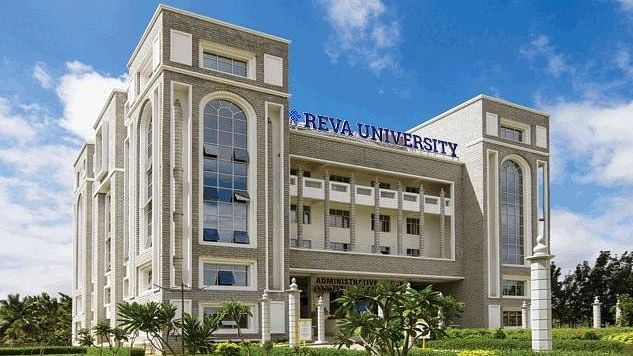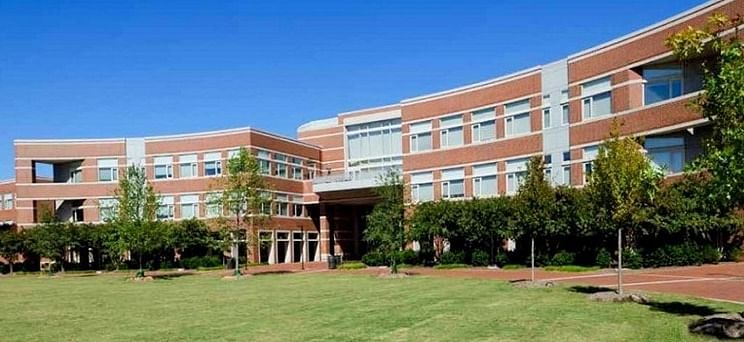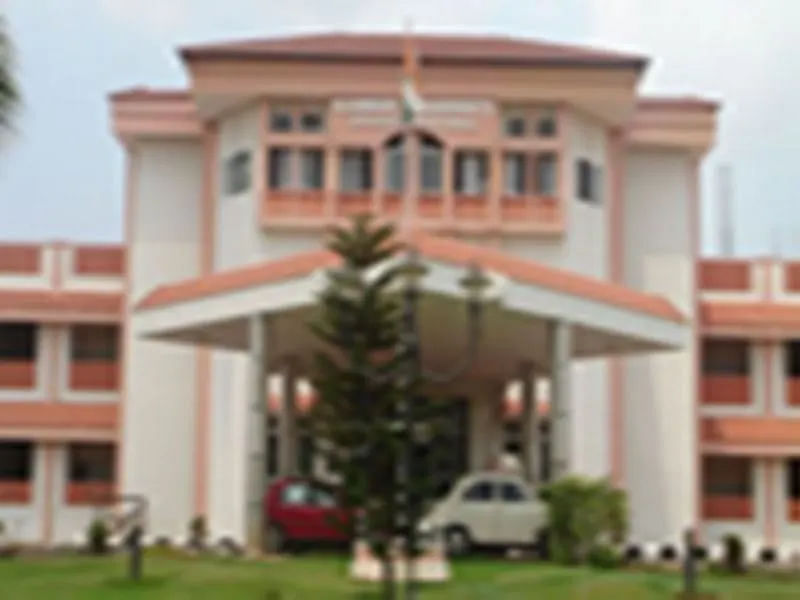B.Sc Bioinformatics: Course Details, Eligibility, Admission, Fees

B.Sc Bioinformatics course is a 3-year-long Bachelor's degree that deals with informatics and computational perspective, knowledge, and abilities to tackle real-world life science problems. The graduates can get various BSc Bioinformatics jobs like Application Support Specialist, Bio-Analyst, Bioinformatics Programmer & Analyst, Bioinformatics Trainer, Clinical Pharmacologist, Computational Chemist, etc.
Table of Contents
- About B.Sc Bioinformatics
- Eligibility Criteria for B.Sc Bioinformatics
- How To Get Admission in B.Sc Bioinformatics?
- Popular Entrance Exams for B.Sc Bioinformatics
- Top 10 B.Sc Bioinformatics Colleges in India
- Fee Structure for B.Sc Bioinformatics
- Syllabus and Subjects for B.Sc Bioinformatics
- Why Choose B.Sc Bioinformatics?
- Scope For Higher Education
- Salary of a B.Sc Bioinformatics Graduate
- Career Options After B.Sc Bioinformatics
- Skills That Make You The Best B.Sc Bioinformatics Graduate
B.Sc Bioinformatics Course Details
| Degree | Bachelors |
| Full Form | Bachelor of Science in Bioinformatics |
| Duration | 3 Years |
| Age | 17 years and above |
| Subjects Required | Science stream subjects |
| Minimum Percentage | 50% in 10+2 in Science stream |
| Average Fees | ₹5K - 5 LPA |
| Average Salary | INR 2 LPA to 25 LPA |
| Employment Roles | Application Support Specialist, Bio-Analyst, Bioinformatics Programmer & Analyst, Bioinformatics Trainer, Clinical Pharmacologist, Computational Chemist, etc |
About B.Sc Bioinformatics
B.Sc Bioinformatics stands for Bachelor of Science in Bioinformatics duration is 3 years. Bioinformatics is a field of study that combines natural chemistry and subatomic research with data innovation to investigate life sciences, notably biomedicine, through computational science. The course falls under the umbrella of B.Sc.
According to Wikipedia, "Bioinformatics is an interdisciplinary field that develops methods and software tools for understanding biological data, in particular when the data sets are large and complex. Bioinformatics has been used in silico analyses of biological queries using mathematical and statistical techniques."
Eligibility Criteria for B.Sc Bioinformatics
Only those candidates who meet the eligibility criteria are admitted to the B.Sc Bioinformatics programme. Some colleges demand students to have a 50% aggregate in 10+2 to be considered for enrolment. There are no age restrictions. Students must also take the course's mandatory entrance exam.
How To Get Admission in B.Sc Bioinformatics?
Admission to the B.Sc. Bioinformatics programmes are available either based on merit or by direct admission. Filling out the candidate's information in a form, either online or offline, is part of the admissions process. After the college/university confirms the application, the candidate must pay the course fees, after which the faculty will award admission.
The following is a general description of the admissions process:
How to Apply?
According to the guidelines, admission applications can be obtained via the University website or by visiting the admissions office. Students must meet the eligibility requirements for B.Sc Bioinformatics in India before applying. Students must complete the registration form by providing the relevant information. The B.Sc Bioinformatics course details will also be available on the website.
Selection Process
Only those students who meet the eligibility criteria of a minimum aggregate will be admitted. The list of selected candidates can be notified of the outcome and the next steps in the admission process via the college's official website or by email.
Read More on B.Sc Admission
Popular Entrance Exams for B.Sc Bioinformatics
Entrance tests are required for admission to the best B.Sc Bioinformatics colleges. Short-listed candidates will be invited to an interview based on their performance in the written test, which is the qualifying exam. The following are the most popular B.Sc Bioinformatics entrance exams for which most candidates apply:
A Quick Glance at the B.Sc Bioinformatics Entrance Exam
Students must pass the college's examination to be admitted to a B.Sc Bioinformatics programme. Short-listed candidates will be invited to an interview based on their performance in the written test, which is the qualifying exam. The following is a standard format for students' admission exams:
- Students must ensure that they fulfil all the required qualifications to ensure eligibility.
- All test papers will be entirely objective.
- It is a Computer-Based Test (Online)
- There are around 100-150 questions in the exams
- There is no negative marking for incorrect answers.
- One mark is awarded for the correct answers.
Top 10 B.Sc Bioinformatics Colleges in India
Several institutions offer the course. Students can select from various B.Sc Bioinformatics universities in India based on their merit and qualifications. The list of colleges in India includes both private and public colleges. The following are a few of them:
| Sl.No. | Name of College |
| 1 | Delhi University, Delhi |
| 2 | Banaras Hindu University |
| 3 | IIT Bombay |
| 4 | IGNOU, Delhi |
| 5 | Chandigarh University |
| 6 | LPU, Jalandhar |
| 7 | Christ University, Bangalore |
| 8 | IIT Kharagpur |
| 9 | CUSAT, Kochi |
| 10 | Amity University, Noida |
Fee Structure for B.Sc Bioinformatics
B.Sc Bioinformatics fees range from INR 5,000 to 5 LPA depending on the college or university, based on the type of facilities they provide. Below listed are the fees structure of some B.Sc Bioinformatics colleges in India:
| SI.No | Name of College | Average Annual Fees |
| 1 | Sri Ramachandra Institute of Higher Education, Chennai, Tamil Nadu | INR 75,000 PA |
| 2 | Sathyabama Institute of Science and Technology, Chennai, Tamil Nadu | INR 71,000 PA |
| 3 | DY Patil University, Navi Mumbai, Maharashtra | INR 85,000 PA |
| 4 | Annamalai University, Chidambaram, Tamil Nadu | INR 30,000 PA |
| 5 | Jaipur National University, Jaipur, Rajasthan | INR 49,700 PA |
| 6 | YBN University, Ranchi, Jharkhand | INR 34,500 PA |
| 7 | GITAM Institute of Science, Visakhapatnam, Andhra Pradesh | INR 65,000 PA |
| 8 | Deogiri College, Aurangabad, Maharashtra | INR 20,485 PA |
| 9 | CMJ University, Meghalaya | INR 65,000 PA |
Syllabus and Subjects for B.Sc Bioinformatics
B.Sc Bioinformatics is a bachelor's course that specializes in the science of collecting and analyzing complex biological data such as genetic codes. It is a field in which the interface between biology, computing, and statistics is used in organism biology, molecular biology and biomedicine.
Listed below are some of the popular subjects that are taught to the students:
- Building and Interpreting Multiple Sequence Alignment
- Database Management Systems Editing and publishing Alignments
- Programming in JAVA Applied Statistics
- Phylogenetics Sampling Techniques
- Structural Analysis: Working with RNA and Protein 3-D Structures
Read More: B.Sc Bioinformatics Syllabus and Subjects
Why Choose B.Sc Bioinformatics?
Students often think about the details of the subject before choosing the course. Before deciding on a career, students might come across this question, "what is B.Sc Bioinformatics?" and "Why choose B.Sc Bioinformatics ?". To clearly understand answers to these questions, we have framed the following three pointers:
What are B.Sc Bioinformatics All About?
Students will gain a broad grasp of bioinformatics and a comprehensive introduction to genetics, cell biology, applied mathematics, biostatistics, and important parts of computer science through the BSc Bioinformatics College in India curriculum.
The specifics of the B.Sc Bioinformatics course are provided to offer candidates an understanding of the science of gathering and analyzing complicated biological data.
What Does a B.Sc Bioinformatics Graduate Do?
While many jobs are based on theory, B.Sc Bioinformatics graduates can put theory into practice. Aspirants will be allowed to gain practical experience, focusing on "hands-on experience" and "learning by doing."
Bioinformatics Programmer & Analyst: A Bioinformatics Programmer or Analyst's duties are to build programs using computational formulas to determine outcomes based on biological projects or research. The individual may develop software, create query routines, & building relational databases, and the individual must also possess knowledge of algorithms.
Reasons Why B.Sc Bioinformatics Can Fetch You a Rewarding Career
This course is designed to produce academic researchers and professionals capable of working in a variety of interdisciplinary settings. Bioinformatics is an academic investigation of the amalgamation of natural chemistry and sub-atomic science alongside data innovation. It explores life sciences, particularly biomedicine, by using computational science.
Career Scope and Options: Graduates can work as Application Support Specialists, Bio-Analysts, Bioinformatics Programmers, and Analysts, among other positions. Agriculture offers a wide range of opportunities for a successful career. Due to the general curriculum's range and fluidity, students receive a rewarding education.
Read More: B.Sc Bioinformatics Job Opportunities & Scope
Preparation Tips for B.Sc Bio-Informatics
Some of the course preparation tips for the B.Sc Bioinformatics course are listed below:
Know The Syllabus And Exam Pattern: To prepare well for the entrance exams, the students should know the exam pattern, syllabus, type of questions, and the books.
Practice Question Papers: Practice solving all previous years' papers to understand the type and the patterns of questions asked. It also helps to improve and prepare for the day of the exam.
Take Mock Tests: Solving a lot of mock tests can help graduates gain accuracy and speed.
Prepare Time Table: In advance, Finish preparation. This will ensure that the students will have enough time to revise the content.
Scope For Higher Education
Candidates might choose to work or continue their education after completing the B.Sc Bio-Informatics programme. Job chances rise with a second degree in the very same profession. Graduates might focus on specific parts of the course. The following are some higher education options:
Salary of a B.Sc Bioinformatics Graduate
According to Payscale, the average B.Sc Bio-Informatics income in India for freshers is INR 10 LPA. Salary and annual earnings are determined by the type of practice and performance, expertise, and other factors. Students can improve their earnings even more by gaining additional education and experience.
Read More: B.Sc Bioinformatics Salary
Career Options After B.Sc Bioinformatics
Graduates of the B.Sc. Bioinformatics programs can find work in a variety of fields. Graduates can work in both the public and private sectors. It also has a teaching position available. The following are some of the job opportunities available to B.Sc Bio-Informatics graduates:
- Lecturer
- Teacher
- Scientist
- Bioinformatics Trainer
- Bioinformatics Programmer & Analyst
Skills That Make You The Best B.Sc Bioinformatics Graduate
Some people are interested in BioInformatics and would like to pursue it professionally in the future. With its wide-ranging and in-depth topic content, B.Sc BioInformatics is designed for students who are interested in the field and want to learn more. The following are some skills that are required:
- Analytical Skill
- Critical Thinking Skill
- Communication Skill
- Ability to Manipulate precise and intricate ideas
